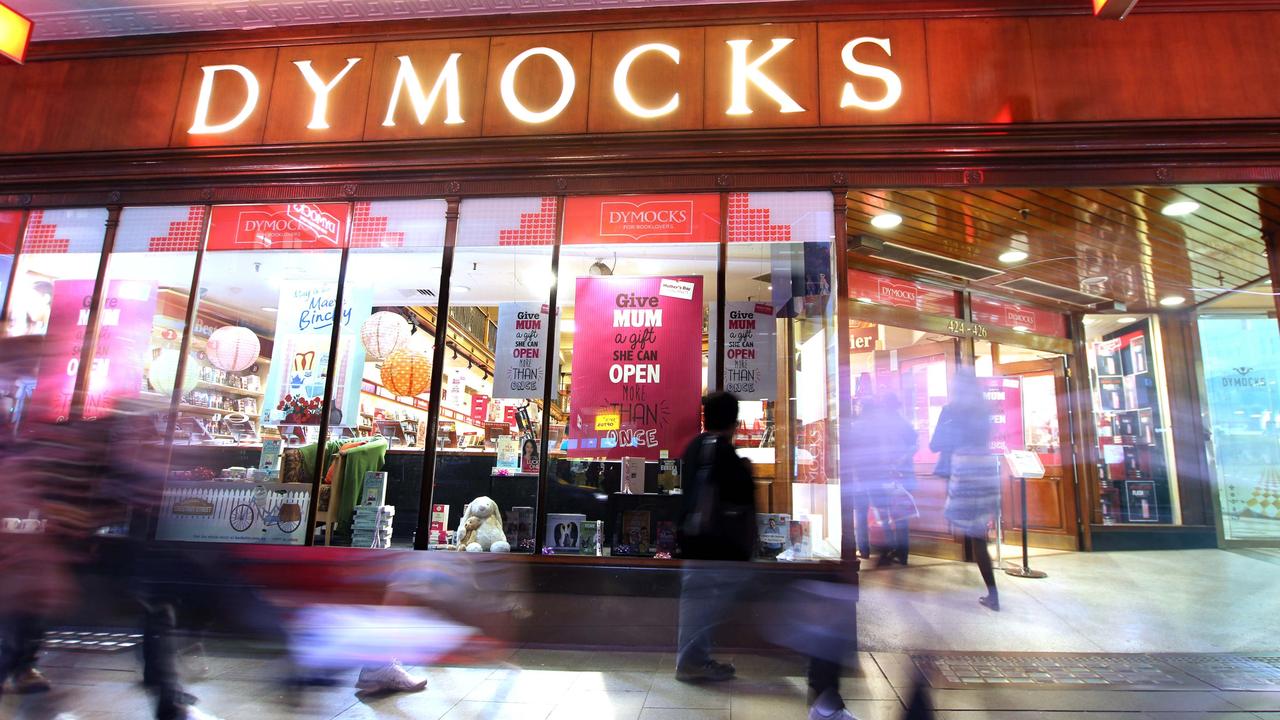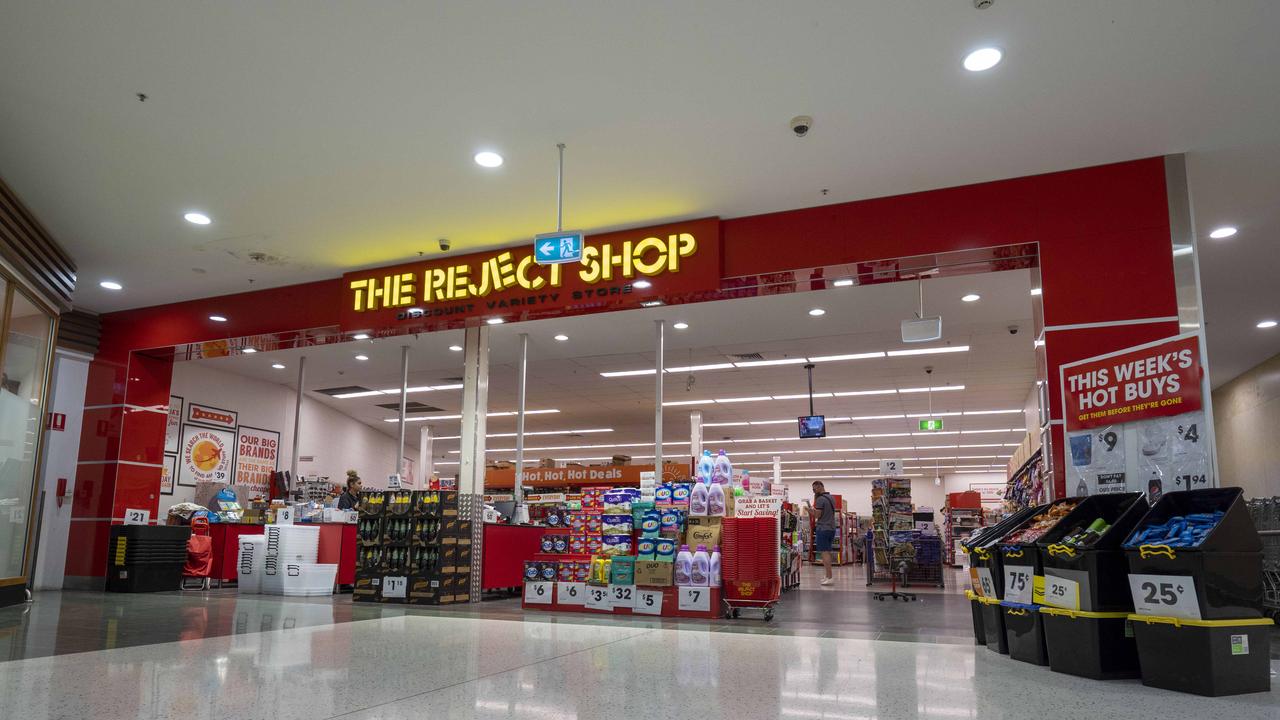Coronavirus Australia: Why some retailers are closing their doors while others are selling more than ever
It’s no secret supermarkets are doing well, but a string of other well-known retailers have seen sales shoot up by 400 per cent or more.
News that 9000 Australians will be stood down from retailers including Just Jeans, Flight Centre and Lovisa will come as no surprise.
Right now, most shops can remain open. But as coronavirus restrictions have increased, some retailers have decided to pull the pin leaving employees wondering whether they will have a job to go back too.
Yet, some retailers like Dymocks and The Reject Shop are having a boom time with sales up 400 per cent, far exceeding even that of Christmas.
So which stores are losing out in the battle against COVID-19 and why? And which retailers are making a profit out of the pandemic?
To see how bad it is, just peek into your local shopping centre today and see how barren it will look.
Shopping centre staple Premier Investments – whose brands include Smiggle, Peter Alexander, Just Jeans, Jay Jays, Portmans, Jacqui E and Dotti – said yesterday it would temporarily shut up shop due to the outbreak until April 22. Premier has also said it won’t pay rent on its stores for a month. Wittner, Saba and Aesop also announced on Thursday they were closing.
RELATED: Follow the latest coronavirus updates
RELATED: 9000 jobs in limbo as Peter Alexander, Just Jeans, Dotti close
They join Lovisa, Lush, Michael Hill, Colette by Colette Hayman, Hype, Platypus, Athletes Foot, Nike, Apple, Microsoft and others that will close their doors temporarily. Others, like Kikki. K and Tigerlily have collapsed completely.
Premier said that the closures were because its “primary focus is the health and safety of employees, customers and the broader community.”
Other retailers, however, have said that social distancing regulations are completely at odds with running stores where shoppers are encouraged to linger and interact with staff. It’s easier just to close.

FASHION SHOPS WORST OFF
Editor of Inside Retail magazine Jo-Anne Hui-Miller told news.com.au that retailers that rely on customers’ discretionary spend – money left over after buying the basics – were particularly vulnerable right now.
“Some are shutting down because their categories aren't necessarily considered essential and customer numbers are down – fashion in particular has been hit pretty hard.”
In the space of six months, department store Myer – heavily reliant on clothing sales – has seen its share price plummet from a high of 62c a share to just 12c today. Yet, at the moment, Myer will stay open.
But Ms Hui-Miller said some retailers were doing tremendously well even though what they offered would ordinarily have been considered discretionary.
“There are retailers that are not necessarily considered as essential as supermarkets, but are selling products that are continuing to do well in this current climate.
“They sell items like home electronics, toys, books, home office supplies, gym equipment, plants – these are all things that people are now focusing on now that they're both working and entertaining themselves at home now.”
A compelling offer, customer loyalty and a streamlined online presence were all key.

400 PER CENT SALES GROWTH
Dymocks has seen a 344 per cent increase in sales of children’s nonfiction and educational books as parents prepare to have their kids at home for potentially months. Children’s fiction is up 278 per cent, which is a lot of Harry Potter, while sales of games and puzzles have skyrocketed by almost 400 per cent.
Last week, The Reject Shop said same-store sales in the new year had increased more than six-fold to over 15 per cent.
Wesfarmers’ Officeworks has seen its bottom line boosted as people refashion their dining room tables into workstations.
Bunnings, also part of Wesfarmers, is seeing so many customers it has had to impose supermarket-style limits on products such as generators, face masks, turpentine and batteries as Australians hunker down in their home bunkers.

It’ll come as little surprise to learn the supermarkets are doing particularly well as customers queue around the block to crowd into stores.
Woolworths’ share price of $36.75 may well be down from a high of almost $43.60 in February, but it’s trading higher than just about any time in the last five years.
Earlier this week in a note to the ASX, Woolworths Group said it was “not able to accurately forecast the net impact of COVID-19 on the financial year results”.
Many firms have been saying the same thing. For them it’s an ominous sign of plunging sales. But Woolworths could well be looking at its most impressive sales growth for years.
It’s a similar situation at Coles. Its current share price is hovering round the $16.50 mark but last week reached $17.25, its highest since the company reflated on the stock exchange in 2018.
Metcash, which supplies IGA-branded stores, hasn’t traded higher than now since May 2018.
Things aren’t so bright for the big shopping centre owners, despite housing many supermarkets. They will keep their doors open but their share prices have fallen off a cliff.

Scentre Group, which operates Westfield in Australia, had been bubbling along at around $4 per share for several years. In early February the share price took a nosedive and is now at just $1.68.
Vicinity Centres, that operates Melbourne’s Chadstone, Sydney’s Queen Victoria Building and DFO, has seen its share price plunge by two-thirds. The share price of GPT, which runs Melbourne Central among others, has been cut in half.
The Shopping Centre Council of Australia, which represents the big malls, has recommended that its members don't terminate leases on small and medium sized business owners that are struggling to pay rent.
Woolworths, which owns 28 of the centres it anchors, has said it will offer rent relief to most of its tenants and even give staff casual roles in the supermarkets and liquor stores for the next few months.
“There's no denying that the bushfires, the subdued Christmas sales, the Hong Kong protests and Brexit would have hit some retailers hard,” said Inside Retail’s Ms Hui-Miller.
“But customers expect more from their retail experiences now and simply offering a mediocre proposition isn't enough. So, I feel like – for these retailers – coronavirus might just be the tipping point for them.”




